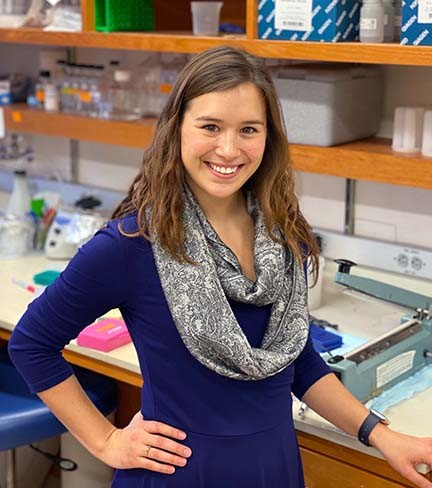Dear KIF1A.ORG Community,
Small roadblocks should never halt therapeutic discovery. That’s why we created KIF1A.ORG’s Mini Grant initiative to support smaller direct project expenses that can accelerate our path to treatments for KIF1A Associated Neurological Disorder. In 2021, we awarded three mini grants for the following novel projects led by members of our Research Network. Learn more about each grant recipient and their project below!
Dr. Michael Silverman, Simon Fraser University, Canada

Characterizing microtubule-based cargo transport in KAND patient-derived induced neurons:
This study explores whether the R203S variant alters BDNF transport and/or release at the synapse.
The R203S cell line was generated by a mosaic patient who has wild type (healthy) KIF1A proteins and mutated KIF1A proteins, providing researchers a natural “control” in experiments to help validate findings. BDNF (brain-derived neurotrophic factor) is a molecule in the nervous system that affects nervous system health and development, such as neurite outgrowth, cell survival, and synapse formation and maintenance. BDNF is one of KIF1A’s cargos, and it’s possible that errors in transportation of BDNF can contribute to neurodevelopmental issues in KAND patients.
Dr. Jayne Aiken, University of Pennsylvania, United States

Dissecting the cellular consequences of distinct classes of KIF1A mutants:
This study explores how KIF1A mutations affect neuron function, specifically long-distance KIF1A cargo trafficking and synapse formation.
This grant supports the creation of cell lines with KIF1A mutations by using CRISPR-interference technology and lentiviral DNA delivery to “engineer” cells that model KAND. The cell lines represent different classes of KIF1A dysfunction. For example, some mutants cause the KIF1A protein to bind too strongly to the microtubule, while other mutations prevent the KIF1A protein from binding at all. These engineered cell lines will be useful not only to show us what these classes of KIF1A mutations look like in cells, but also whether wild-type gene therapy is a viable strategy to help alleviate cellular defects for distinct classes of KIF1A mutants. Altogether, this study will help us learn more about KAND and potential treatment strategies to “rescue” KIF1A dysfunction.
Dr. Kumiko Hayashi, Tohoku University, Japan

Non-invasive force measurement method applied to axonal transport by KIF1A in human iPSC derived neurons:
This study explores how many KIF1A proteins are required to transport a single cargo in humans.
Dr. Hayashi’s lab has developed a method to count how many proteins transport each cargo (1 to 6 in mouse neurons and 1 to 3 in roundworm neurons), and they have found that certain motor proteins need an accessory protein in order to properly transport their cargos. With these studies into the number of KIF1A motors it takes to transport each cargo, we may be able to better understand how mutations in KIF1A can affect cargo transport.
Thank you to our Research Network members who go above and beyond to advance research and therapeutic development for KAND! We will update the community with progress and results as these exciting projects move forward!
Relentlessly,
Dr. Dominique Lessard
Chief Science Officer
dvlessard@kif1a.org
Michelle Tao
Therapeutic Development Associate
michelle@kif1a.org

